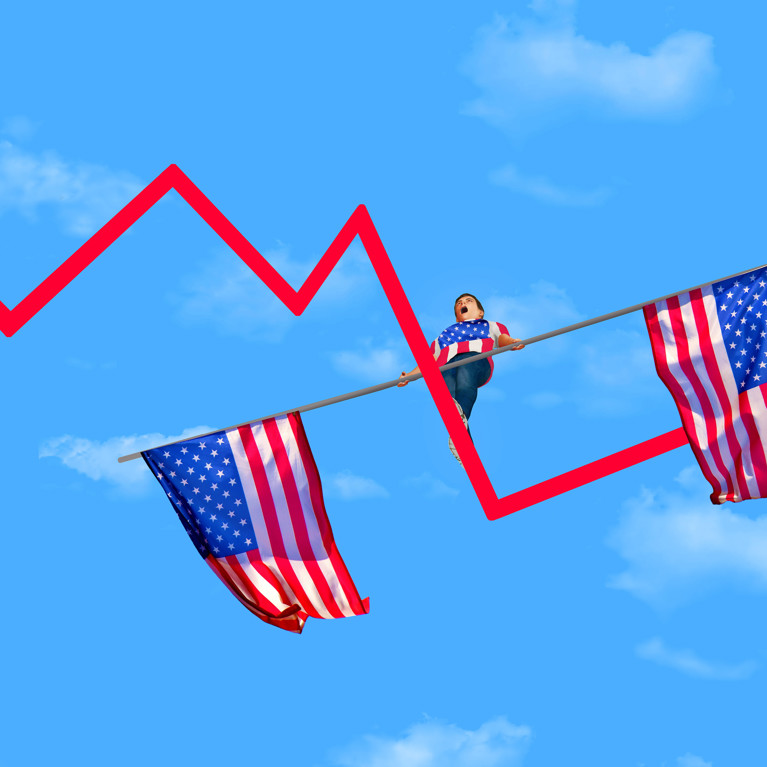- Posted on 23 May 2025
- 3-minute read
Donald Trump’s efforts to influence international tech regulation are heating up. Wielding threats of retaliatory tariffs on foreign imports, he is seeking to shut down any regulation which imposes taxes, penalties or other burdens on tech companies. In a mirror image of his much-ridiculed contention that tariffs bring foreign money into the US, his campaign against foreign tech regulation is designed to curb the transfer of American money – in the form of tech company profits – ‘to the foreign government’ or their ‘favoured domestic entities’.
At the World Economic Forum in Davos in January, Trump called the potential use of fines under the EU Digital Services Act a ‘form of taxation’. As former US defence bureaucrat Andrew Exum recently wrote in The Atlantic, Trump ‘unabashedly uses the American private sector as an instrument of national power’.
But the power runs the other way as well: tech companies are using the US government to achieve their own ends. As Meta’s Mark Zuckerberg said, 'The U.S. government should be defending its companies.' We knew this was coming, of course, with the image of Trump flanked by major tech CEOs at his inauguration in January adumbrating his clientelist approach to government.
Prime US targets include AI regulation. In April, the US government sought to curb development of the EU’s General-Purpose AI Code of Practice. This was followed by claims from advocacy groups that tech-company lobbying had succeeded in weakening protections for copyright and fundamental human rights, after they had already managed to push these rules out of the AI Act itself and into the voluntary code. The lobbying seems to have succeeded in part because of a view that more-stringent regulation will disadvantage European tech development.
This desire to share in the still-unrealised economic spoils of AI also appears to be driving a UK government proposal to exempt AI companies from the need to seek permission from copyright holders when they scrape data. Instead, in a reversal of how copyright normally functions, copyright holders would have to opt out.
But the proposal has met strong opposition in the House of Lords, with filmmaker Baroness Kidron arguing, ‘There's no industrial sector in the UK that government policy requires to give its property or labour to another sector – which is in direct competition with it – on a compulsory basis, in the name of balance.’ The Lords has now overturned the government’s proposal for a third time. Meanwhile, long-awaited AI-safety requirements have reportedly been delayed after Trump’s election.
In the US, Trump is going hell for leather to undercut AI protections introduced under Biden. Early this month, Congress introduced broad amendments to the Budget Reconciliation Bill that would prevent US states from enforcing any law or regulation of artificial intelligence or ‘automated decision systems’ for 10 years.
But this libertarian approach is under opposition not only from digital and civil rights groups, but elements of Congress and even Trump’s own administration. Mike Davis – that’s not me but a Trump antitrust advisor – said 'It’s not fair use under the copyright laws to take everyone’s content and have the big tech platforms monetize it. That’s the opposite of fair use. That’s a copyright infringement.'
Hollywood, of course, is also not enamoured by a failure to protect copyright from AI depredations. This conflict over the limits of corporate freedom can also be seen in the ongoing anti-trust cases against Meta and Google, which Trump has not sought to curtail. Whether it has any effect on Trump’s strong-arm trade tactics is another matter.
Back at home, Australia’s consultations over AI policy and regulations are ongoing, with copyright and safety concerns also contending with a drive to promote AI innovation. If the Albanese government seeks to progress them this term, they will no doubt do so with an eye on Trump’s likely response.
References
Coded for privileged access (2025, April 30). Corporate Europe Observatory. https://corporateeurope.org/en/2025/04/coded-privileged-access
Courea, E. (2025, February 24). UK delays plans to regulate AI as ministers seek to align with Trump administration. The Guardian. https://www.theguardian.com/technology/2025/feb/24/uk-delays-plans-to-regulate-ai-as-ministers-seek-to-align-with-trump-administration
CPI (2025, April 29). Trump administration pushes EU to delay AI regulations. Competition Policy International. https://www.pymnts.com/cpi-posts/trump-administration-pushes-eu-to-delay-ai-regulations/
Duffy, C. (2025, May 20). House Republicans want to stop states from regulating AI. More than 100 organizations are pushing back. CNN. https://edition.cnn.com/2025/05/19/tech/house-spending-bill-ai-provision-organizations-raise-alarm
Exum, A. (2025, May 21). What Trump got right in the Middle East. The Atlantic. https://www.theatlantic.com/international/archive/2025/05/trump-middle-east-trip/682860/
McKiernan, J. (2025, May 19). Peers demand more protection from AI for creatives. BBC News. https://www.bbc.com/news/articles/c39xj284e14o
Nguyen, T. (2025, May 14). Elon Musk’s apparent power play at the Copyright Office completely backfired. The Verge. https://www.theverge.com/politics/666179/maga-elon-musk-sacks-copyright-office-perlmutter
Zitron, E. (2025, February 24). There is no AI revolution. Ed Zitron’s Where’s Your Ed At. https://www.wheresyoured.at/wheres-the-money/
Wheeler, T. (2025, May 16). Will Donald Trump make European tech great again? Brookings Institution. https://www.brookings.edu/articles/will-donald-trump-make-european-tech-great-again/







